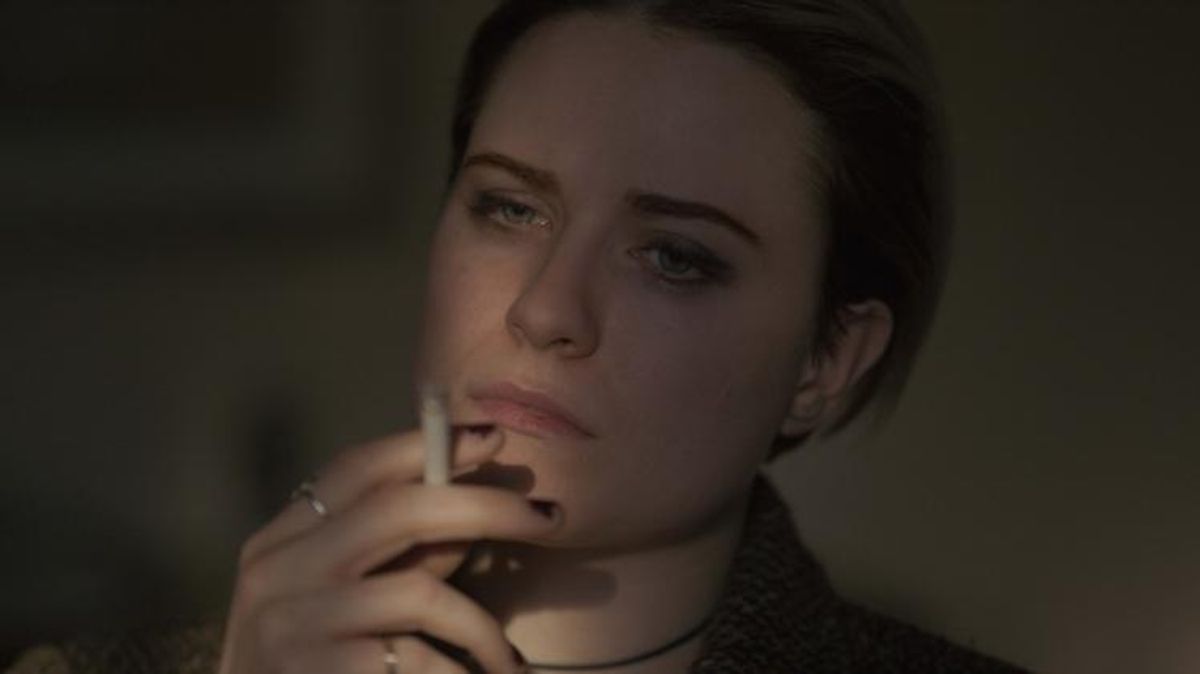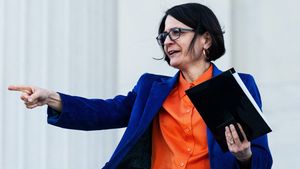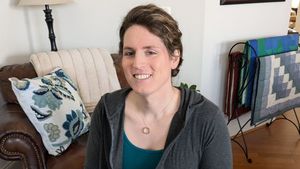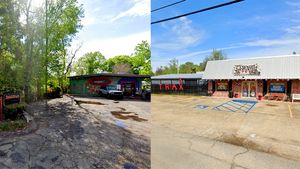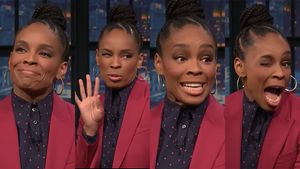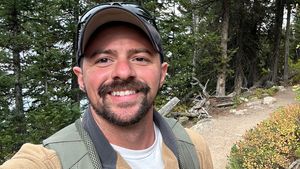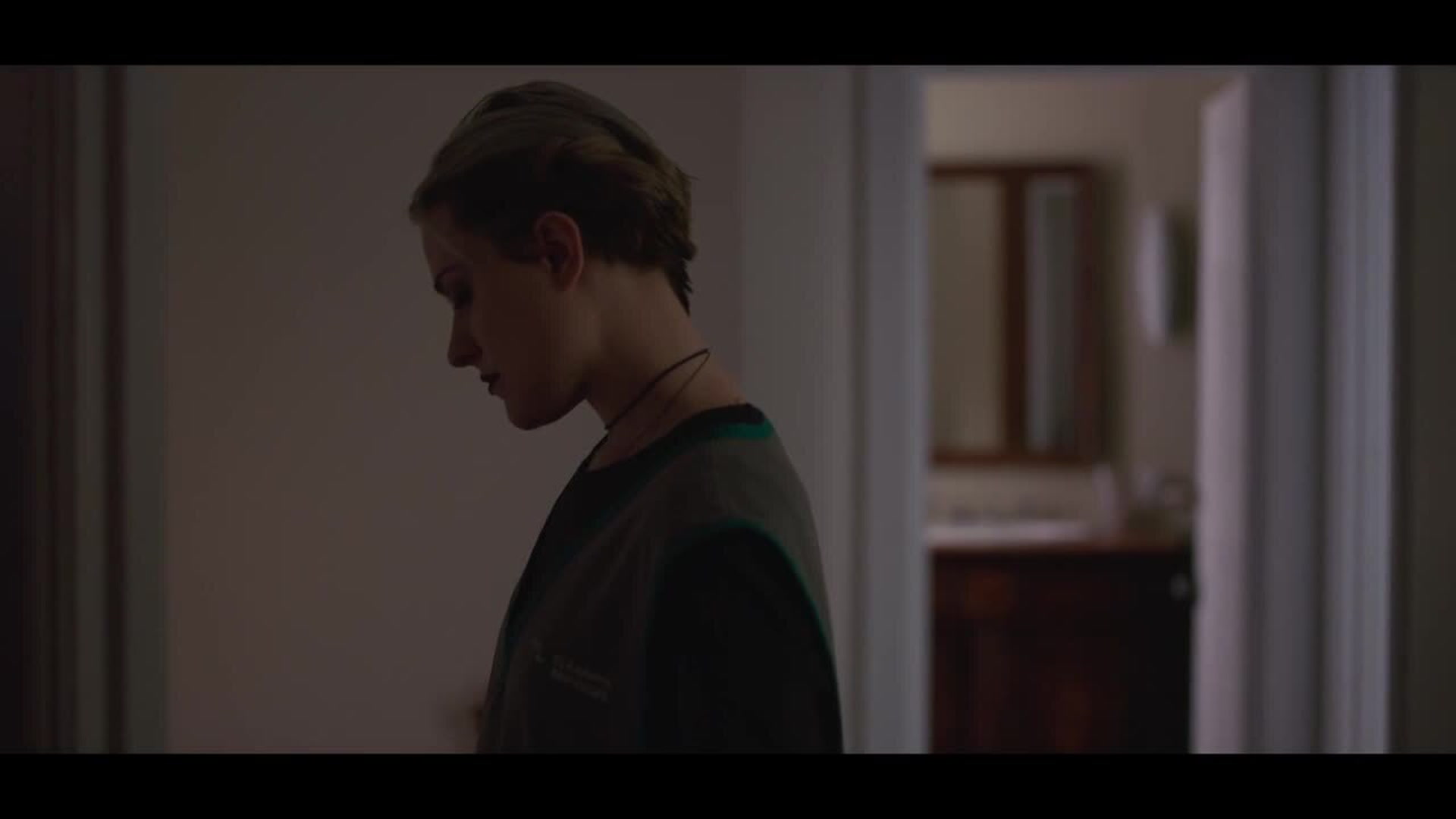Evan Rachel Wood's latest film, Allure, in theaters now, sees the actress painted in a light very unlike anything we've seen from her before. As a solitary housemaid, Laura, she enters into a relationship with, and subsequently kidnaps, her 16-year-old client. A survivor of abuse herself, Laura is a deeply complex woman with a history of severe mental instability who can be decidedly categorized as an antagonistic and deeply unlikable character, yet Wood manages to find a humanity and intense vulnerability in her performance.
The film comes at a highly interesting moment in Hollywood, as stories of abuse within the industry take center stage. To tell a story of abuse from the point of view of the abuser at such a time was a radical move, made more interesting by the choice of casting a woman to play this part, given that it had been initially written for a man. The result is a frightening film that captures the deeply woven mental intricacies and contradictions victims of abuse so often face, and the vicious cycle they often find themselves wrapped up in.
Related | James Marsden Confirms Westworld Season 2 is 'So Much Bigger'
As an outspoken survivor of abuse in her own life, Evan Rachel Wood found herself uniquely qualified to portray the nuance of such a frightening relationship onscreen. But that's not to say the role was a walk in the park. The Emmy-nominated actress explained to us how difficult it was to revisit the anger she'd worked so diligently to overcome in bringing authenticity to this part. That the core relationship of the movie is homosexual is refreshingly inconsequential, and Wood talked to us about her delight that telling queer stories doesn't have to be for queerness' sake anymore.
It's not the only highly demanding role Wood has taken on this year. As the star returns to the wild odyssey of Westworld for a second season, she explained why the new challenges have made season one seem like a breeze. She spills about the crazy shooting schedule, the ambitious time frame they worked in, and the blood, the shotguns, and the horseback riding that so often permeated her workday.
Besides Westworld, we got Wood's thoughts on her new movie in the context of #TimesUp, finding a way to keep such an emotionally charged set feeling safe and consensual, and how she was able to pull off embodying a sociopathic abusive kidnapper with astounding believability.
OUT: What were your first thoughts on the script when you read it? I'm imagining you had a strong reaction, in one way or another.
Evan Rachel Wood: Well, it's funny, I had just done season one of Westworld and was exhausted. Doing Westworld is one of the most physically and emotionally draining things anyone can ever do. That goes for whether you're the camera operator or hair and makeup. It's just a really brutal shoot. It's amazing. I mean, I wouldn't trade it for the world, but that's the hardest thing I've ever done. I didn't want to do another movie. I was like, 'I'm done for the year, I can't, I have to recuperate.' Then I came across this script, and the writing was really good. It struck me at first because ever since I heard Jodie Foster say that she reads scripts for men and women and, if she really likes them, she just asks if they can gender swap it, I was like, 'Man, I hope I can get to a place in my career where that's possible,' because that's a genius idea.
And that seems like a no-brainer now that the film is finished.
Luckily, Jason and Carlos, the directors and writers, had already come to that conclusion about this one. They had tried to make it with a man, and they were like, 'Ah, there's something about this that is just not popping.' And someone said, 'What if he's a woman?' And they had the awareness to go, 'Wow, that makes the story--that gives us so much more to play with.' To do it well with two women and have one of them be the abuser was like, 'Whoa, okay, I haven't seen this story, and I wanna know how this goes and this happens and what the psychology behind this is.' I was really attracted to that because I believe in equal opportunity for women in film--that goes not just for the good guys but for villainous characters, as well. So this was like, 'Ok, I have the opportunity to do that and to play this sort of Taxi Driver-ish character as a woman and see what that's about.'
It's a really intensely emotionally complex role.
I really appreciated the complexity, because obviously, I have experience in this area, and this was the first time I really read something that captured the psychology of an abusive relationship and the abusive side as well. It's something that, if you haven't experienced it, it's really hard to judge. So when people ask, 'Why didn't you just leave? Why did you come back?'
If you have been manipulated in that way through your love for somebody, you're really vulnerable. I thought it was important to show how it's done, how gaslighting is done, and how emotional blackmail is done. How after a while you can start feeling sorry for your abuser and you don't know how to leave, so you just try to take care of them and try to stop whatever fiasco is about to happen. Also, the effect of abuse is something I can relate to [with] PTSD. There were things about the character that I knew I could give some understanding to--the torment of herself and feeling like a prisoner of her own trauma. I think you can see her dissociation in the film. Sometimes that's a trauma response. I think if you look really hard, you can see the moments where she's not there. She's physically there, but there's nothing behind her eyes.
Definitely.
And that's what abuse looks like. It's somebody that's walking around like a normal--relatively normal--person, but if you look a little deeper, they're not there. They're a shell of a person. They've gone to another realm because they've had to. Especially if they've been abused themselves. It paints a different picture--a more honest picture--because it's complicated.
You've struggled with abuse in the past and, as you said, that makes you uniquely qualified for this role. How did you feel when the #MeToo movement was beginning and these stories were coming to light?
Oh man. I wrote this essay about it for Nylon called "What a Time to be Alive," and it was what I learned in the year since Trump had been elected. But it wasn't even about Trump [or] about how horrible he is--it was about other things. It's been a real bittersweet moment. It's been retraumatizing and when it was all happening, we were also working on Westworld and the themes in that are all about overcoming abuse and oppression and finding your power. Season two is really about the reckoning.
Jeez, I can't wait! Wow.
Knowing that while it was going on was a real 'life imitating art' point in my life. Luckily, I've been doing work every single day in my life to become a whole person and I've read every self-help book I could. I tried to learn about abuse and learn about trauma and the more I can learn about it, the more I can understand it. The more I can let it go because otherwise it's just crazy, and you don't know what you're feeling and no one really tells you. I've felt strong enough to do these roles because I knew it and understood it, but I also knew I could go there and be able to get myself back out.

It must have been such a powerful feeling to be in a place to do this role.
Yeah, and when the #MeToo movement happened, people were like, 'How you doin' man?' I was like, 'You know what? I'm proud of myself because I'm very shaky and I'm very triggered, but I'm not hopeless and I'm not in despair.' That was new for me. It was new to be like, 'You know what? I'm feeling these things, but it doesn't feel as dark or as scary or like I'm free falling.' That was empowering and to know that you're not the only one just made me sob.
This is a female-led story, and it's directed by men, but it really is a story that takes the female perspective. It's so interesting because she's not a very... She's a bad person, really, at least to an extent.
She's broken.
She's broken. And I wonder how the LGBTQ angle fit into this?
When you think about Laura, you know that she's been struggling with shame and identity and repression her entire life because she had been dealing with that sort of thing that she didn't really know how to deal with. Trying to stifle that or whatever, but I also appreciated her being... whatever she is. I don't even know if she's gay, you know? That was never the culprit. It was never, 'Oh, well she's abused and now she's gay,' or 'oh, she's gay, now she's abusing.' It was just two women.
Yeah, it's past that.
Yeah, we're past that. Exactly. That's not what it's about. And let's shatter those conceptions about that being the issue. That's not the fucking issue.
Right!
If anything, the issue is these backward ideas.
That led to this, yeah.
Yeah, it was just rebranding it in a new way. And it's funny when people interview me about it and they hardly bring it up. That's amazing. That people can watch a movie that is still a lesbian romance with a much older woman and much younger girl, and they are focused on your movie. That means we did our job right. That's a good sign.
It's also a nice indicator of how much progress has been made in regards to gay and queer storylines when that doesn't have to be the focus anymore. It's just accepted as something that can be on screen, not for its own sake.
Exactly.

When you were filming, what the energy was like on set? Especially with this really heavy story and with the consent aspect with your co-star, Sarah Stone?
She was nineteen when we did the movie, and that's one of the reasons why Julia was so perfect. We looked at a lot of girls because it had to be right and they had to have a certain sense of emotional maturity to act very vulnerable. It had to be believable that I could overpower this person and be physically threatening to them.
She was amazing.
She checks all the boxes and she was the best actress. When she came into the reading, I was like, 'Duh. It's Julia. She's the only one that can do this.' She's an adult legally so it makes our job easier because we're not worried that we're traumatizing this poor person. She's a real actress and we had mutual respect. I'm so not like this character at all and I was mainly concerned that I wasn't going to be believable as this scary person or that I was going to be too timid with her and be worried. I was probably overly cautious and was always asking if she was okay because I also remember what it's like being that age and being on a set. Even when you're nineteen, you're still vulnerable. I was constantly like, 'Ok, I'm gonna do this now, are you cool with that?' or 'Ok now, you just let me know, speak up.' I think after a while, she was like, '... I'm fine!'
It also helps that we had Sara [Mishara] behind the camera. She's a genius. I'm obsessed with her. It was wonderful having that extra pair of eyes behind the lens--we knew that we were going to be taking care of. She wasn't going to be doing anything that would be gratuitous or that was going to exploit us in any way. Any time we veered into that accidentally, we shut it down so fast. We were allowed to look at playback and be like, 'We can't do this. This doesn't send a message we want to send, so let's just stop.' We were careful.
It's good to hear that you had women in so many aspects of the filmmaking process and that it was done with a lot of careful thought. What was the most difficult aspect of filming this?
Anger.
Anger?
Yeah, because I feel like I've worked so hard to not be angry, now it's the hardest emotion to conjure up. You've got to go back into the depths of yourself and be like, 'Ok, what really made me mad?' I don't like it. My least favorite part of my job is whenever I have to be scary or mad or hurt somebody. Who likes doing that? Some people are like 'Oh, it's so much fun to play the villain,' and I'm like, 'No it's not! It's awful!' It was not fun and the first time we did the scene where I came in and I threw her onto the ground, I started to cry.
The first time I did it and I was yelling at her, I was fighting back the tears of regret and fear for her and myself. It was really weird to be on the other side, but it also made me feel like I could bring influence to it. I knew I could sit down with Julia and be like, 'You know, when someone does this to you, you're too shocked to move.' I feel like I could put my input into it and say, 'When someone does that to you, you are so frozen because you cannot believe it's happening.' Most people think you would fight back. Well, I mean, some people would, sure, but for the most part, you're on the floor thinking, 'What is going on?' It's hard to process this quickly enough to react.

In regards to Westworld, you touched on how it's been the most challenging thing you've ever done and I know you can't share any spoilers, but how has season two has felt compared to season one in terms of the filming process.
Season one was a walk in the park comparatively. Season two is highly ambitious in terms of the themes and the amount of time for filming. It was like filming ten movies in six months. The schedule was grueling, to say the least. We were also filming out of order this time so a lot of the time, I'd show up and be like, 'What episode is this? What happened right before this? What's gonna happen right after?' If you tried to keep track you would drive yourself crazy. We did our best. You're also on horseback and in the cold and you're risking your life. It's the Deadliest Catch factor because you do it while riding full speed with no hands and shooting rifles. That was a daily occurrence and you do it like improv almost. You're given this scene and then you do it.
Wow, oh my god.
But I also think that there is a part of [the producrers] that like us to be completely disarmed--just like the guests in the park. I'm talking about stripping us down to our most primal selves. I have a weird feeling that that's also why they keep us in the dark. So that we're our most primal, vulnerable, honest selves and don't overthink things. I've noticed on the show that, because it's so complicated and because we care so much about it, it's really easy to go off and do too much with it. It's probably better that they give us a little bit by bit.
So you don't get the whole script at once?
No, we get scripts as they come--sometimes the day before we're about to shoot. I've worked on some scenes from episodes I hadn't even read. I'll walk in, and I'm looking around going, 'Ok, I don't know what is going on. I don't know why you're here, I don't know what that is, or what I'm doing or why I'm covered in blood.' I'd ask, 'Why am I covered in blood?' And they'd say, 'You've been through some stuff.' It is quite a new way of working that I don't think anyone is used to, and at times it's all crazy, but I think we all secretly love it.
